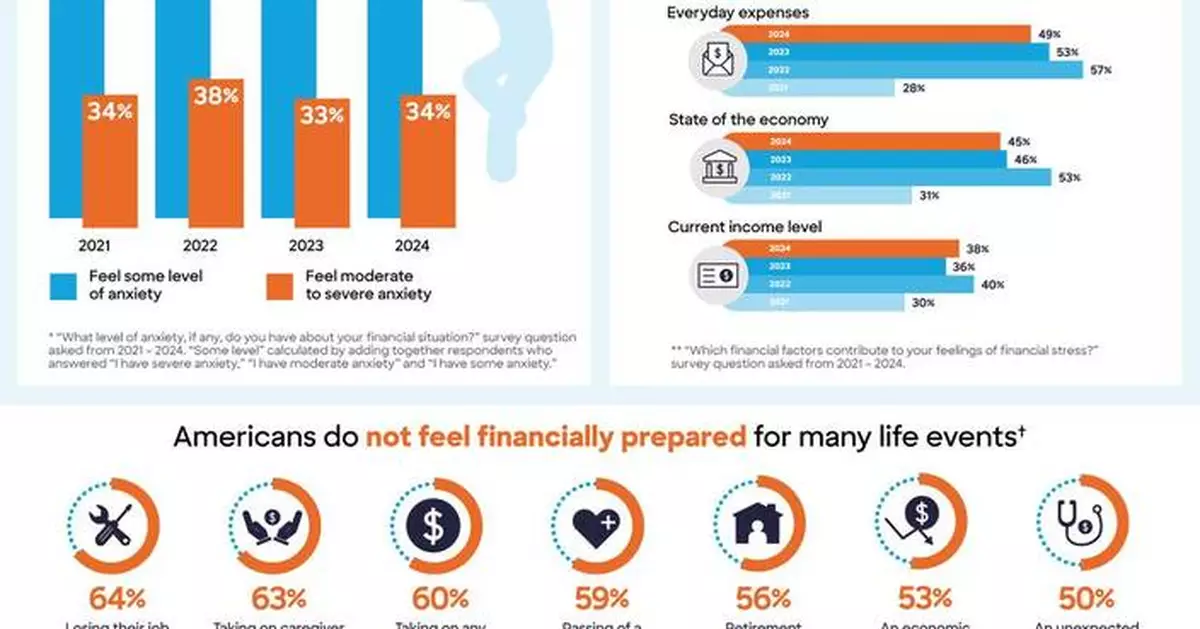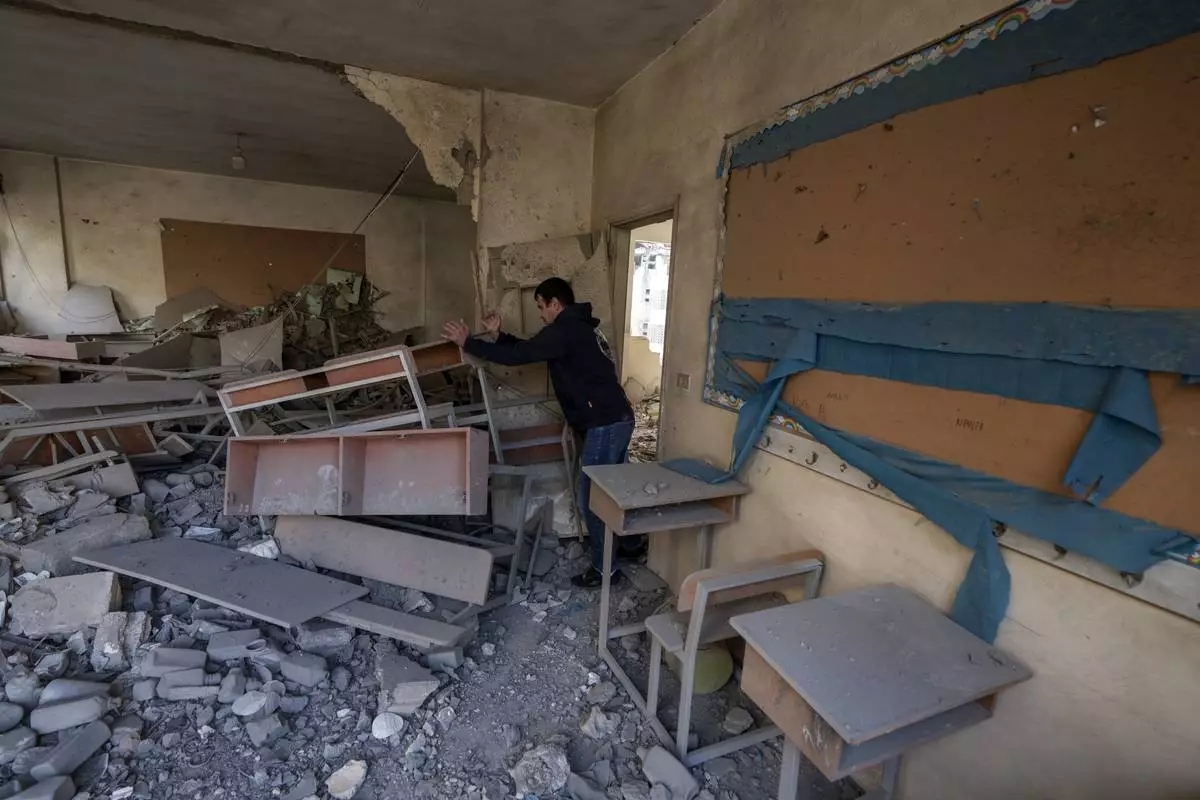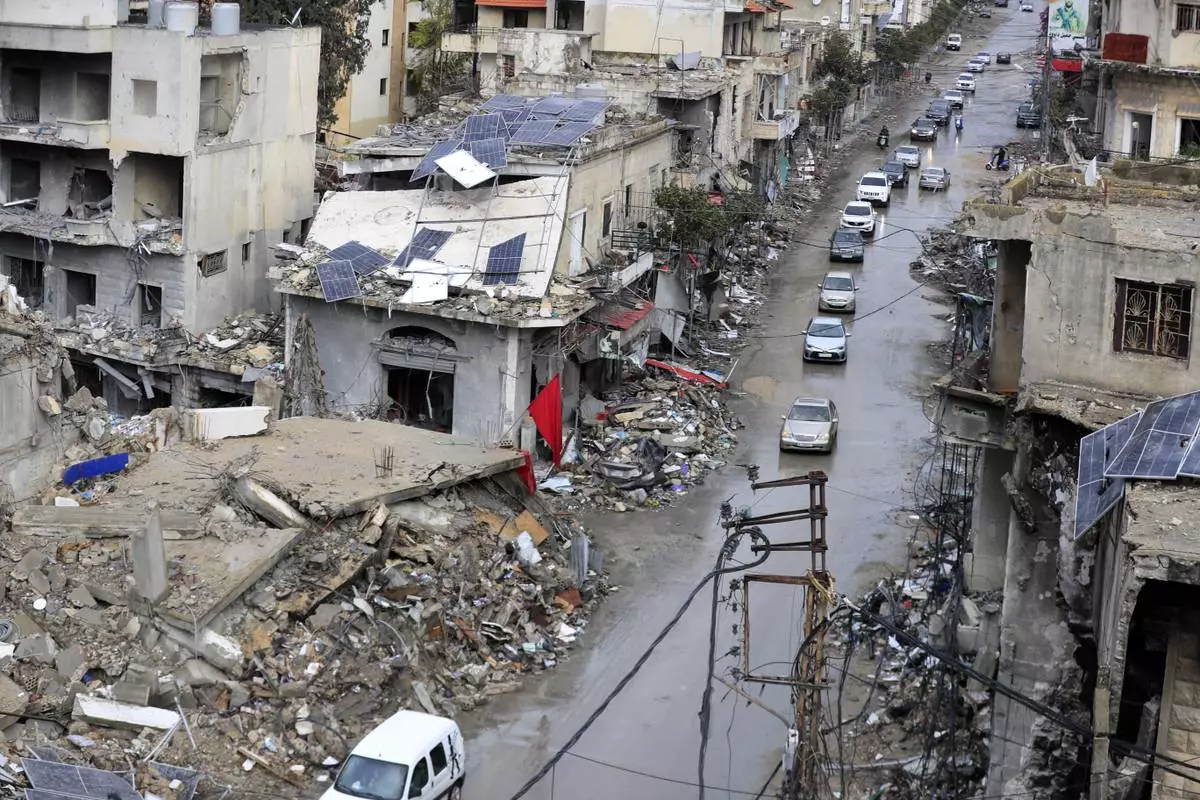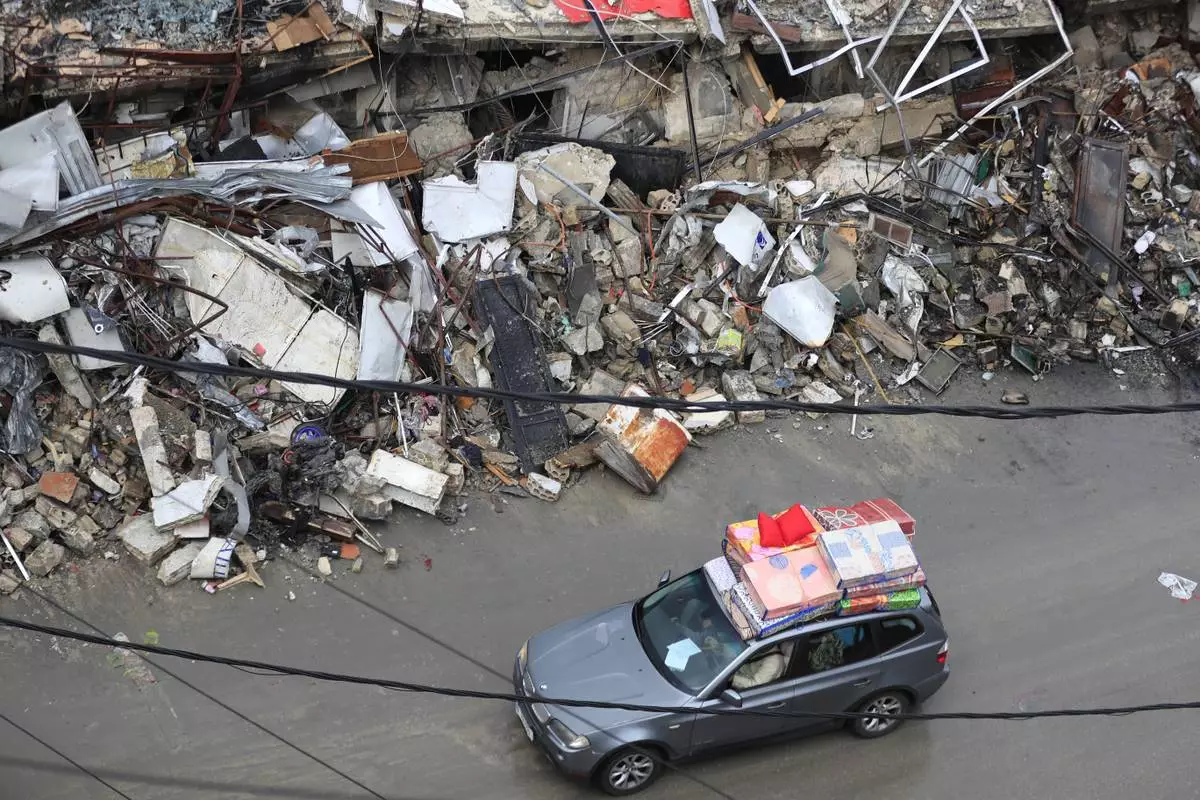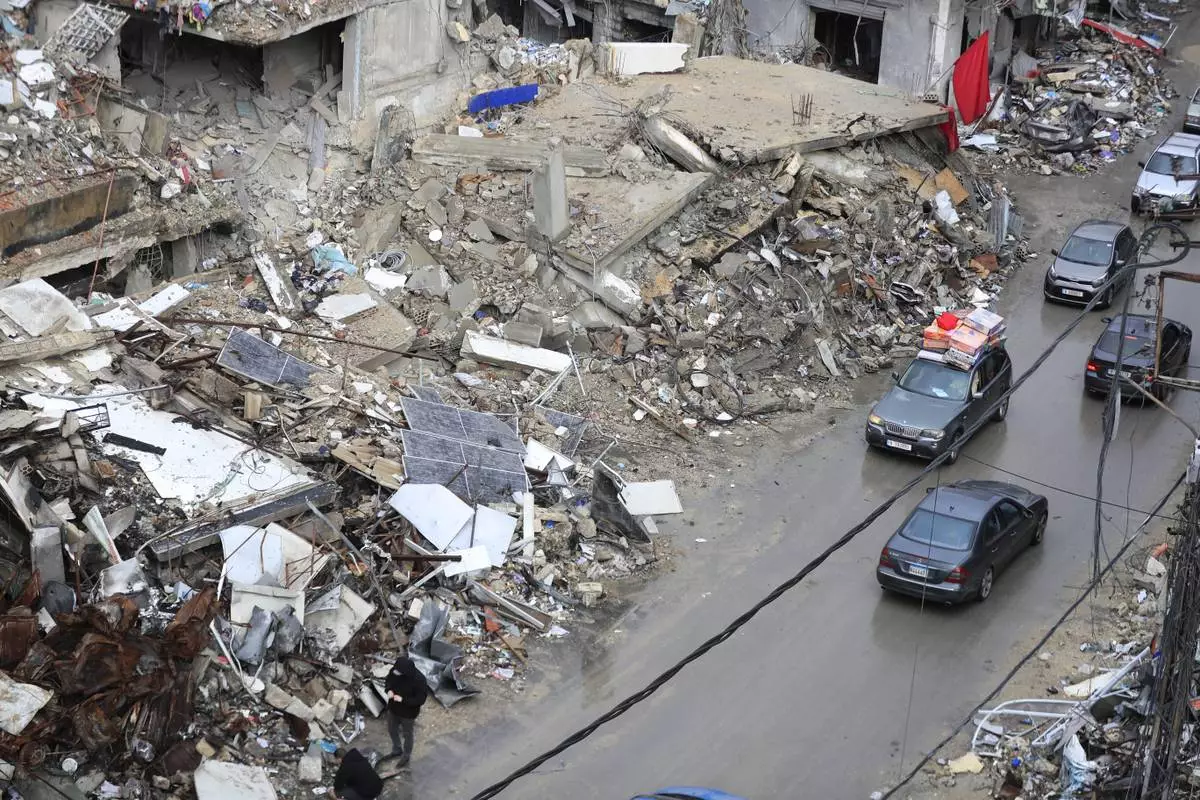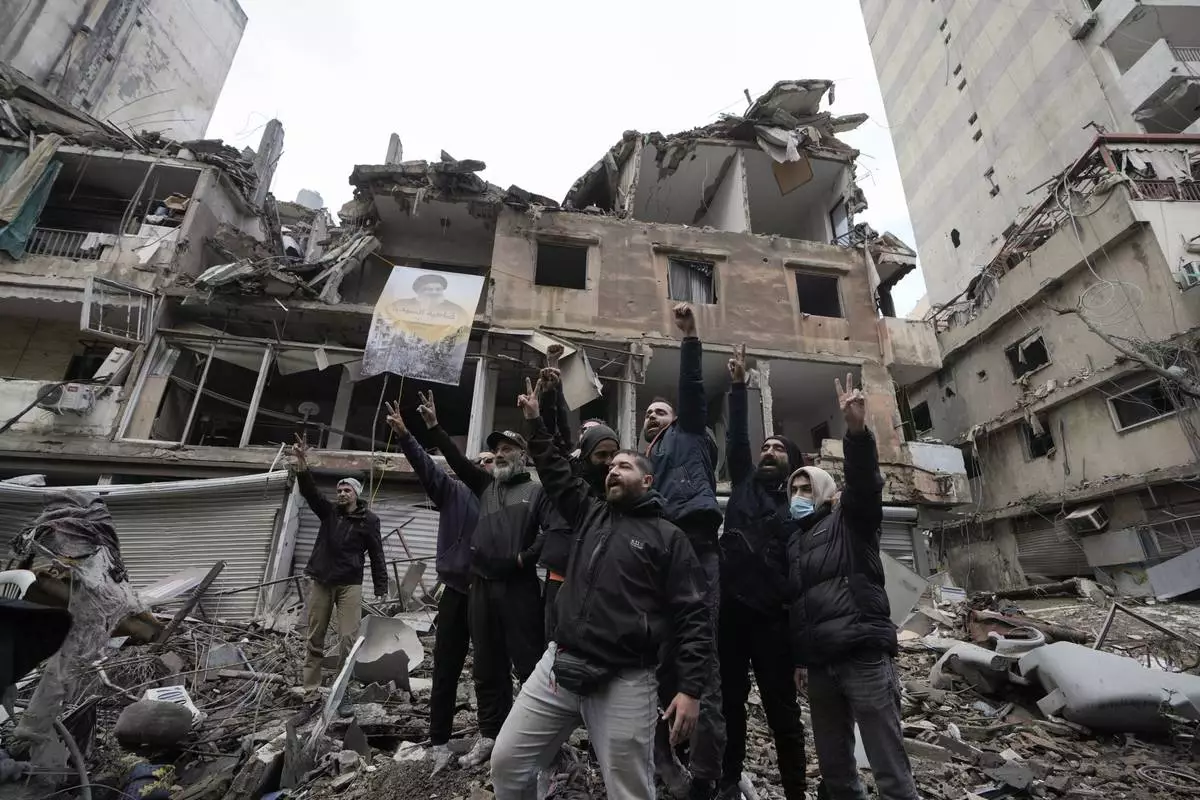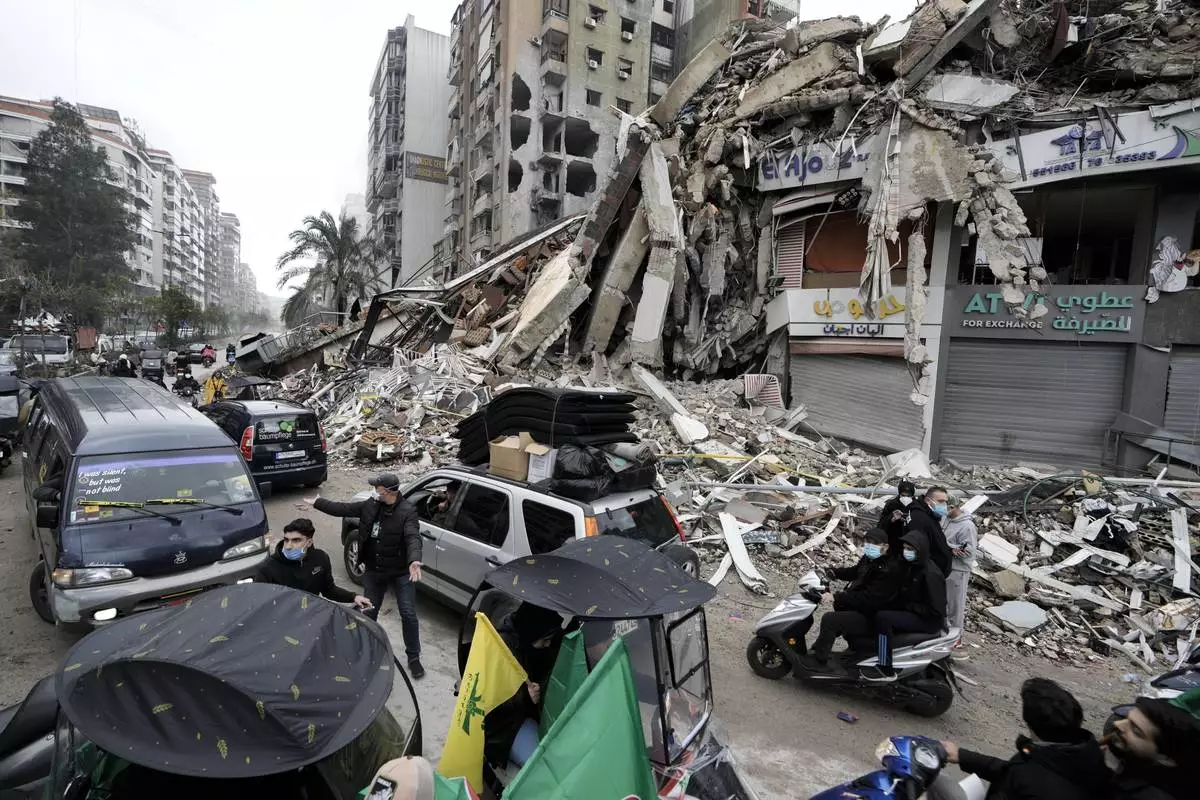RIVERWOODS, Ill.--(BUSINESS WIRE)--Jul 23, 2024--
Four in five Americans have anxiety about their financial situation, with 34% experiencing moderate or severe anxiety, according to a new national survey conducted by Discover® Personal Loans. The number of Americans who feel some level of financial anxiety has remained consistently high the past three years and is up nine percentage points from 2021.
This press release features multimedia. View the full release here: https://www.businesswire.com/news/home/20240723820169/en/
American Consumer Financial Anxiety Index a
Financial stress is so severe that many Americans appear to be fearful of even looking at their situations. This is especially true among Gen Z with 41% who say they avoid looking at the amount of money in their bank account (vs. 27% of Millennials and 20% of Gen X).
“For the many Americans experiencing financial stress and anxiety, it may help to write out the reasons why and then address those in small and manageable steps,” said Dan Nickele, vice president, Discover Personal Loans. “Some steps could be building a monthly budget, reviewing expenses to identify opportunities to cut costs and making a plan for potential unexpected expenses like medical costs or home repairs. It may help lower stress just to know that a low fixed interest rate loan could be available if it’s needed in the future for a financial emergency.”
Inflation, expenses, the economy and income are the top drivers of financial stress in 2024
More than half of Americans continue to say high inflation contributes to their feelings of financial stress (58% in both 2024 and 2023, the top stressor both years). Additionally, stress around expenses, the economy and income reached a high point two years ago, and has remained significantly higher than in 2021.
Top Financial Stressors for American Consumers b
About one-third (30%) of Americans cited debt as a cause of financial stress. Of those, 84% have credit card debt and 55% have medical and/or home loan debt. Nearly nine in ten (88%) survey respondents have been in debt at some point, and of those 55% say their main priority is to pay their debt off quickly.
“Creating and sticking with a plan for paying off debt may give consumers peace of mind, open up new financial opportunities and could put them on a path toward a more rewarding financial future,” adds Nickele.
Americans do not feel financially prepared for many life events
According to the results of the study, many Americans do not feel well equipped to handle a litany of life events that may contribute to feelings of financial strife. For instance, most Americans do not feel financially prepared to lose their job (64%), take on caregiver expenses (63%) or take on unexpected expenses over $5,000 (60%). c
Americans do not feel financially prepared to handle c …
Misconceptions around managing debt vary across generations
According to the survey, 31% of Americans feel that they will never get out of debt, which is similar across generations (36% Gen Z, 39% Millennials, 34% Gen X).
“Consumers across generations and economic situations may not be aware of the financial tools available to help them manage their debts and unexpected expenses,” said Rachael Olson, director of product strategy, Discover Personal Loans. “Those who are struggling with debt could potentially benefit from a type of personal loan called a debt consolidation loan, which may allow them to combine multiple higher-rate balances into a single fixed-rate loan with a set monthly payment to budget for.”
The reasons Americans avoid taking out a personal loan vary across generations. Thirty-three percent of Millennials and 32% of Gen X say they don’t take out a personal loan because the fees are too high, vs. only 18% of Gen Z. Meanwhile, 22% of Gen Z say it’s because they don’t understand how to apply for a personal loan, vs. only 6% of Millennials and 2% of Gen X. Twenty-one percent of Gen X consumers don’t believe they will qualify for a personal loan, vs. 18% of Millennials and 15% of Gen Z.
“We encourage consumers to do research to find the best personal loan product that can be tailored to their needs,” adds Olson. “Some of the roadblocks identified by our survey can be addressed by looking for a lender that offers a competitive interest rate, no application fee, no origination fees or closing costs, and flexible repayment terms. We also recommend looking for a lender with a strong history of great customer service, with agents available to answer any questions.”
Discover Personal Loans has many resources available to help consumers learn about managing debt, financing major expenses and reaching their financial goals. A personal loan calculator can help consumers find a loan term that works for their individual situation, and a debt consolidation calculator can help consumers see what they could potentially save if they were to consolidate higher-interest debt with a personal loan.
About the Survey
The national survey of 1,500 U.S. residents ages 18 and up was commissioned by Discover and conducted by Dynata (formerly Research Now/SSI), an independent survey research firm. The survey was fielded from April 16 through April 23, 2024. The maximum margin of sampling error was +/-3 percentage points with a 95 percent level of confidence.
About Discover
Discover Financial Services (NYSE: DFS) is a digital banking and payment services company with one of the most recognized brands in U.S. financial services. Since its inception in 1986, the company has become one of the largest card issuers in the United States. The company issues the Discover® card, America's cash rewards pioneer, and offers personal loans, home loans, checking and savings accounts and certificates of deposit through its banking business. It operates the Discover Global Network® comprised of Discover Network, with millions of merchants and cash access locations; PULSE®, one of the nation's leading ATM/debit networks; and Diners Club International®, a global payments network with acceptance around the world. For more information, visit www.discover.com/company.
Equal Housing Lender
Discover makes loans without regard to race, color, religion, national origin, sex, handicap, or familial status.
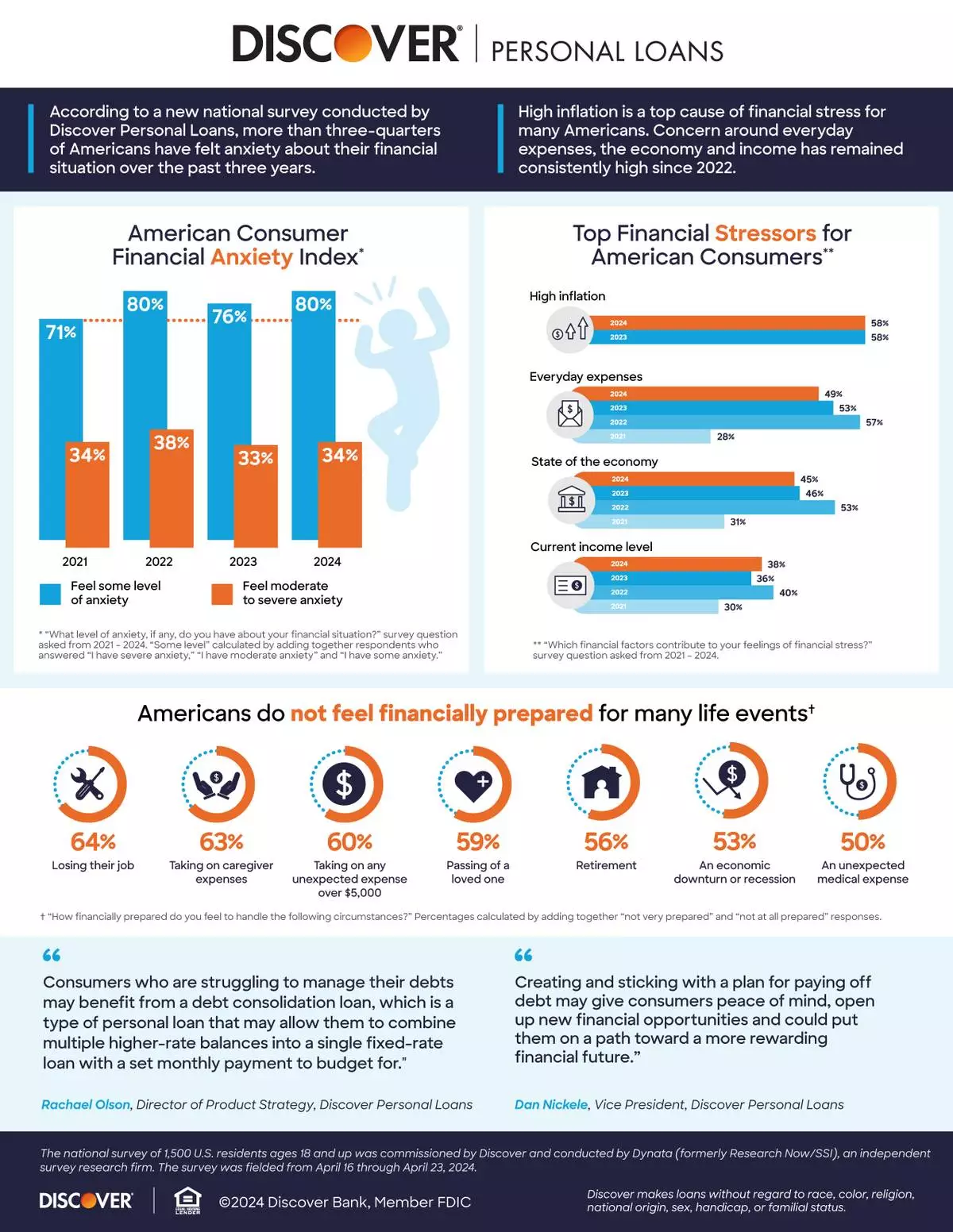

80% of Americans have anxiety about their financial situation. (Graphic: Business Wire)


